Dragon Age: Origins
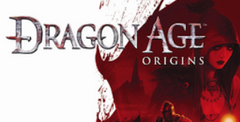
| a game by | BioWare |
| Platforms: | XBox 360, PC (2009), Playstation 3 |
| User Rating: | 9.5/10 - 4 votes |
| Rate this game: | |
| See also: | Games with Character Creation, Top Down Games, Isometric Games, Games Like Divinity Original Sin 2, Witch Games, Games Like Baldur's Gate, Games Like Morrowind, Games Like Fallout New Vegas, Games Like Baldur's Gate Dark Alliance, Games Like Wasteland 2, Games Like Skyrim, Games Like Star Wars: KOTOR |
Something Strange Is happening to me, and I hope you don't feel it rude if I share a little. I've developed a total boycrush on a friend called Alistair. I haven't told him, as dialogue hasn't opened that up as an option, but he's probably worked it out as I take him everywhere I go. I equip him with all the best weaponry, I make sure he's satisfactorily buffed at all times... hell, I just like being around him.
Say me and my gang are wandering through the Blight-ravaged wilderness and Alistair is cracking a joke with my other pals - good-girl paladin-type Leliana, and vampish side-boob witch Morrigan - even though we're in the middle of nowhere I just turn around to watch him. I often don't equip him with a helmet just so I can see his face. Oh Alistair, be mine forever. When this business with the darkspawn is over, why don't we buy a cottage in the Ferelden countryside and hang out all the time?
I'm sure it's OK though. These nascent psychological stirrings can only have been prompted by the fact that Dragon Age: Origins has some of the best realised characters, greatest storylines and most natural free-flowing dialogue ever ladled onto a PC's hard drive. In other games you hammer the keyboard to cycle through the chit-chat to get back into the action, in Dragon Age when you strike up a conversation you settle back in your chair and turn up the volume. BioWare have taken the complexities, bottomless depth and sheer epic nature of their early RPGs and mixed in the wit, pace and mind-bogglingly threaded and context-sensitive dialogue of their later Knights of the Old Republic and Mass Effect to astounding effect.
Tolkien Detail
The land of Ferelden feels real to the touch, so layered is it in history and so plagued by political and racial turmoil. As a fantasy world it's up there on a par with that of The Lord of The Rings' setting. In fact the whole piece feels like a Dorian Gray portrait of Middle-Earth - a familiar landscape tinged with an extra darkness, abused power and intolerance.
Let's start at the start though. Once you've selected your character, played around with their facial features, class and what-not you gallivant off into one of six separate two and a half hour(ish) prologues detailing your character's last traumatic experiences of his/her former life.
Whether you're a posh dwarf, a common dwarf, a mage, a City Elf, a noble human or a Dalish elf hiding out in the forest, no-one gets it particularly easy. It's in these origin tales that -BioWare begin as they mean to go on -covering themes of racial intolerance, power hunger, and institutional oppression, while spicing each one up with topics like child murder and gangrape. Ferelden is far from a happy land of faerie-folk.
Birth Of Heroes
These origins work brilliantly, not only as individual cases of playable lore but also in personalising the 70+ hours of gametime ahead of you. As you play through the game your origins are meshed with the overall narrative thrust of the game to such an extent that you struggle to imagine what would be happening to someone with a different background. It's also fascinating when origin NPCs have a life beyond these beginning tales.
There's one, for example, that the Mage character encounters during his grand entrance in the Tower of the Circle of Magi. The same chap will then pop up 40 hours later (maybe less, maybe more) as an important plot NPC. To the magic-wielder he's already an interesting and deep character you'll have established trust issues with, but to everyone else he's a blank sheet.
This is an effect redoubled when the main storyline brings you back to the origin tale's former haunts. For a sixth of players this means revisiting old friends and enemies that are still afflicted by your former decisions, but for everyone else its a trip to a strange new culture of which they have very little knowledge. It's a fantastic, mind-boggling and brilliant concept.
Come the end of your hellish deliverance into the world of Ferelden (seriously, try the Human Noble origin - 'dark' isn't the word) and you're soon collected by Duncan, a roaming talent scout Dune is a Grey Warden - and he wants you to join their dwindling number.
The Grey Wardens are a group of warriors who act as a safeguard against the Blight - militaristic and plague-like stirrings of the undead, prompted by machinations below ground in the Deep Roads - that spreads every 500 years or so. You travel to the city of Ostagar, where a young naive king and his grizzled general are about to face down the horde once and for all and your help is needed. As to what happens next well the 80 or so hours of Blight-stomping that remain make it clear that it isn't a total success.
It is at this point that the adventure begins to pull in different directions. The land of Ferelden needs to be united against the Blight - so your band of travelling death-bringers must visit the beleaguered humans of Redcliffe, the secretive Dalish elves, the bickering caste-split Dwarves, and tower-bound Mages and sign them up to an alliance. It's like being one of those clipboard-wielders who knock on people's doors asking them to change power suppliers. Only you're met with kingship disputes, escaped demons, possessed children, werewolves, dragons, and armies of the undead instead of confused pensioners. All the while there are a barrage of side-quests, random encounters, class specific mission-givers, smaller towns and the sprawling city of Denerim to live, love and level through should you wish to meander away from the branching main quest and occasional 'Meanwhile!' plot sequences that play out as you journey around the map.
On a surface level Dragon Age's world has the same format as Tolkien's (Deep Roads can be interchanged for the Mines of Moria, Ostagar with Helm's Deep etc.) but the fabric of the land is entirely different, and the game plays with your familiarity and expectation of what you'll find in each.
But enough of this postcardscribbling, let's talk about how it plays. You generally view affairs from a third-person view - and the control scheme isn't a million miles off either. If you're feeling more old-school however you can pull back to a top-down isometric-like viewpoint while the action can be frozen at any point so if you want a greater feeling of tactical nuance and a taste of the turn-based RPGs of old then it can certainly be attained.
Mages Rule
You'll have three followers trail around after you KOTOR-style once your roster starts filling up (chosen round the campfire you can retreat to as you journey around the map) and during combat can leap into their bodies to deliver orders through clicks of your enemies and taps on the quickcommand bar. Alternatively friendly NPCs can be left to their own devices, following tactical orders that you've prearranged in a hugely customisable (almost too hugely customisable) table of 'If X then Y' commands.
As for what you all get up to, it's somewhat RPG business as usual. Rogues favour sneaking in under the radar with poisoned blades for some stealthy backstabs with freshly laid traps in their wake, warriors wade in with double-handed weapons or with shields poised to bash, Mages rend their air with frozen, fiery and electrical pain. It all works an absolute treat, but a special mention must be reserved for the magic use - it's magnificent. In other RPGs I've steered clear of magical characters, as their low-visual impact fireballs and vials of blue magical stuff have never done anything for me. But in Dragon Age magic is a dirty, visceral and brilliant thing. I habitually play as a rogue, but as soon as Morrigan and Leliana showed up then I didn't keep them around for the pillow talk alone.
Getting Better
Levelling for yourself and your cronies happens regularly, with three points on offer for your base-line stats, a core talent advance every two levels, and an extra ability from various skill-branches to slot into your battle tactics every time. It's a great system that's simple to understand, and brilliantly the companions you leave behind level up while you're away, meaning that you never feel like you're spinning NPC plates and walking out with weak characters who haven't had their engine ticking over.
Further specialisation kicks in 20 or so hours in, when you hit a level where you can refine your class one of four ways with a bought book or a compliant NPC trainer (see 'Specialist Tastes'), although many of your companions come with a recent visit to the career's advisor indelibly marked on their character.
Chit-chat between your friends happens ambiently as you move through Ferelden, while they also chip into your conversations with withering put-downs and/or compliant happy-speak as you persuade, intimidate, praise and attempt to bed the general populace.
Should you wish to get to know your charges better though then you'll find yourself spending a lot of time in your campsite. The conversations you have here are nothing short of magisterially written, and relationships within your travelling band of warriors quickly go beyond love triangles and into the realms of a love prism. The very best and funniest of the interactions you can have though are reserved for those with your faithful hound, since despite its darkness there's a lot of light relief in Dragon Age.
Depending on how you treat them, and the solutions you choose to the various moral quandaries you come across, your buddies' opinions of you, and your chances of having any sexy time a few days of gameplay down the line, will raise and lower. Really piss someone off though (like Morrigan the side-boob witch who'll get a right strop on if you're out spreading niceness) and you can always bring them back on-side with a carefully chosen gift. Fail to cultivate a relationship and piss someone off and they'll pick a fight or bugger off.
Where Dragon Age triumphs though is that the rinse-and-repeat cycle of foeslaying, loot plundering, level upping and character fiddling is addictive in the extreme - easily matching the great strides that BioWare have made in dialogue and narrative. It's a handy reviewer stock-in-trade phrase to churn out, but over the past few weeks on average I've lost out on two hours of sleep every night, through thinking I'll just boot up Dragon Age to have a few campfire chats, fiddle with some inventories, craft some traps and poisons, then head off into a nearby dungeon.
Fantasy, Imperfect
All this from someone who never really got on with Diablo, and backed away from World of Warcraft when everything got a little bit +3 Greaves of Frightening. A sense of time and place is lost. Ferelden becomes everything.
Is it perfect? Well, no. For one, the difficulty levels are all over the shop -engaging as the tactical combat is, on the normal difficulty levels you'll come across areas where you'll be wiped out repeatedly. The game just isn't balanced that well, and some rooms will unduly punish you and completely wreck the flow of your adventures - not least because auto-saves aren't as frequent as they might be. My advice, and I've never said this before, is to ratchet the difficulty levels down to easy as soon as you start getting into trouble (which will be guaranteed in the room with the central fire in the Tower of Ishal).
Otherwise, and I'm getting persnickety here, I assume that it's Dragon Age's long-in-the-tooth development that has led to its environments sometimes feeling a little drab and boxy. You just rarely get a true sense of the epic when invisible walls make a surprise reappearance. It's a minor incursion on Dragon Age's all-out assault on greatness, and in outdoor environments it's far less of a problem, but it's easily the part of the game that lags furthest behind.
Overall though Dragon Age: Origins is a brave and brutal return to form for PC fantasy roleplaying - bettering nearest rival The Witcher through both its combat and the innate lovability of so many of its characters. To commit yourself to the Grey Wardens is to offer up a large chunk of the coming months to the levelling god in the sky - but as you j do so you'll laugh, you'll get dewy-eyed, your jaw will drop heavily and often, and you may even get off with a sexy witch.
With Dragon Age: Origins M BioWare have secured their position as masters of the RPG art, and one can only imagine the wonders they're concocting in Star Wars: The Old Republic. Until then though, I'll be replaying Dragon Age. Yomping through the Ferelden Hills with Alistair. Together forever.
Download Dragon Age: Origins

System requirements:
- PC compatible
- Operating systems: Windows 10/Windows 8/Windows 7/2000/Vista/WinXP

System requirements:
- PC compatible
- Operating systems: Windows 10/Windows 8/Windows 7/2000/Vista/WinXP

System requirements:
- PC compatible
- Operating systems: Windows 10/Windows 8/Windows 7/2000/Vista/WinXP
Game Reviews
It's Taken a long, long time but I've nearly got to the end of Dragon Age: Origins. I think I have, at any rate. There could just as easily be another quest that opens up the whole thing for another 57 billion hours, but I suspect that, having finally neared level 20, this is getting to what experts call the "end game".
Plot lines are being drawn together, characters are revealing true colours and I've finished most of the individual backstory quests for my companions. I kind of wish I hadn't chosen a rogue, though. Advice I've been given indicates the optimum choice of character is a mage with the blood magic and arcane warrior abilities unlocked. Still, it seems everyone has their way of progressing, with loads of different tactical ideas coming from a limited class selection.
It seems silly that you've got this big old bunch of heroes and only three of them to use at any one time. Surely you'd go, "I've got all these guys, why not use them all?" That's what I want to see, BioWare. I know you won't do it, though, but I can hope.
BioWare's main man talks about the origins and awakenings of Dragon Age...
- 1 - Awakening Origins
It was a pretty long project. We started as a PC lead, but we always had a hope of bringing it to consoles as well, which became a concerted effort later on. I think we talked at one point about doing a Human Commoner origin story, which wasn't in the shipped game, but it wasn't as aspirational or interesting. But you know, dwarf noble, dwarf commoner, those were exotic. The Dalish and the city elf were intriguing too, plus the mage and the human noble, which were the six we shipped with. We wanted to make sure you took on a role that was aspirational and exciting, ultimately something that players would want to get behind. If we think of anything else though, well put it in the next release.
- 2 - Party Time
One time I had three mages in my party. I had Wynne, Morrigan and my main character was a mage too, with Leliana in front, a dual-wielding, back-stabbing thief who could open chests, of course. I had all three mages progressed along the spell chain to get Animate Dead, so I actually ended up with seven characters in the party, including the corpses. If Leliana was a ranger, she could have summoned a pet and I'd have had eight. Anyway, it worked really well with seven. Did you know that when you cast Animate Dead on a corpse, the thing that gets animated varies according to what they were before? So, if you had a Hurloc Emissary, you'd get a mage, or if you cast it on a ranged guy, like an archer, you'd get them in your party. So you can actually have six mages in your party, which I did a few times, which was really cool.
- 3 - Plumbing The Depths
There's a lot of depth to the game if you poke around in it a lot of interesting nooks and crannies. If you've already progressed a lot with your characters, you might be able to unlock some new abilities later on when Awakening raises the level cap. We wanted to have summonable characters to raise the group size above four, but as for a greater base group size, we looked at it and thought from a performance and playability benefit balance, four was the best number. We considered six and we did some prototyping around three, four and six and decided four was a nice middle ground, so we chose that. We felt there was a nice tactical depth there, so you could have a couple of fighters, a mage and a thief, or a couple of thieves, a fighter and a mage or three mages and a thief, which is what I did. It gave it enough tactical depth and diversity. I think that's really cool, as you get the water cooler moment where you go ''Well, my party was composed of this," and your friends would go, "Oh, I didn't even think of that".
- 4 - Scaled Up
I gotta tell you, fighting a dragon is one of the coolest moments in the game, very epic. They're freaking huge and on the PC, I remember I was fighting some dragons and I was so excited, taking all these screenshots of Sten rushing up to the dragon with his flaming sword, and the dragon rearing over his head.
Wynne was at the back basically trying to heal and animate them back to life whenever they dropped. I took all these screenshots and sent them over to Frank, my boss, and John, my boss's boss, and I was like "Look at this, this is freaking awesome, I'm fighting dragons". Epic stuff, I was really excited by it.
- 5 - Fantasy Life
Dungeons & Dragons and Tolkien, they're high fantasy: it's all good and evil, one or the other. There's elves and they're good, but we wanted elves that were downtrodden, a grittier, more mature take on fantasy. Not like a dark or low fantasy, but somewhere in the middle, taking the best features of high and low fantasy, which we call dark heroic fantasy. We feel it was a fresh take on things. It looks familiar on the surface, but when you dive into it you realise there are a lot of things going on that aren't necessarily obvious. I think The Witcher was more an example of low fantasy. It's on the other end of the spectrum to the high fantasy. It's good, there's a lot of different types of fantasy you can create. I like the middle, where there's a dark, mature world where your choices have consequences, but you can still be a hero.
- 6 - Rules And Regs
We wanted to build our own rule system that was designed first and foremost as a computer RPG system, not a pen-and-paper game system that had been brought to the computer, which is what we did with D&D successfully with Baldur's Gate and y Neverwinter Nights. We thought, let's try something new and build a videogame system that's designed as that first. We actually brought it back to pen-and-paper gaming, doing a version of Dragon Age in that medium, which was kinda cool. I haven't played it yet, but I looked at the rule book, which is really interesting.
- 7 - Risque Business
We're not trying to be gratuitous with the sex scenes. We're trying to get an emotional response, for you to feel affection and believe the characters in your party are real, to feel genuine emotion for them. There wasn't as much of a reaction to the scenes in Dragon Age, certainly compared to Mass Effect where Fox aired a scene on national TV.
In most of our games we've enabled choice, so however you want to play the game, if you're a male and want a female romance interest, or if you want a male romance interest, we've enabled that. We're not saying one choice is better than the other, it's a role-playing game and, as in real life, you can make choices.
There's a little controversy when people say this is different, but we point out we've done this in every game since Baldur's Gate, and they realise the scenes aren't gratuitous. Other than that, there wasn't a controversy. Fox was embarrassed by their story coverage, how they ran a story about it with someone admitting they'd never played the game and was still critiquing it and... well, not good.
- 8 - Toughening Up
In a game as vast as Dragon Age, there are a lot of different ways to play through it. Difficult sections might just be tough because of your current party setup. We had and have a huge Q&A team with a test plan that encompasses the style, but when you put it in the hands of millions of consumers, they're going to find different ways to play it, some of which might not be compatible with the balancing. What I'd encourage them to do is try different party members. When you get stuck or blocked, it might just be a clue that maybe you're not ready to go through that passage yet, that you need to go back out into the wide world and gain a few levels, find some more equipment, buy some more potions and then try it again. If you're running through a barrier and you're dying, that might be a higher level encounter meant for a higher level party. Typically, after the origin stories, there's nothing that you have to do to advance, there's always more content, more quests or experience that you can gain somewhere.
Bioware RPGs Have a lot in common with marriage: they require a commitment of a vast amount of energy and time, and it's little things that make the difference.
Just like rinsing plates before putting them in the dishwasher and buying milk on your way home helps prevent bitter divorces, it's the yellow, rotten teeth in dirt-encrusted NPCs, senile knights and urinating dogs that turn Ferelden into a living world. More so than the realistic social structures, political intrigue and a detailed pseudo-Christian religion.
These almost insignificant touches make up for the game's legion of weaknesses. As with all BioWare games, Dragon Age needed script editors to force the writers to par down the immense amount of dialogue. Then there's the mute and emotionless protagonist. After Mass Effect's cinematic PC and NPC interaction, having Dragon Age's hero Gordon Freeman his way through things is depressing.
But more serious are the gameplay and technical issues. There are the minor flaws-such as not being able to store unwanted equipment for later - use it, destroy it, or sell it - and an inventory that thinks a suit of armour takes up the same space as a pair of silk gloves. Sadly, the biggest flaw is with the combat: it isn't just tough, it can be murderously unbalanced. Some foes (such as wolf packs) can wipe out your team in under a minute, which makes the seconds-long delay between combat initiating and you being allowed to issue commands an often lethal delay.
Add characters who ignore your commands and enemies; opponents that seem to teleport to outflank you; the inability to alter your party's formation outside of combat; mages' pitiful range of spells; enemies who can't be stopped by filling doorways with armoured warriors; arrows that go round corners to hit you, and melee attacks that inflict damage, even if you run 10ft away before the blow actually lands; and a party limit of just four characters.
This makes Dragon Age's suspect support for multi-core CPUs, which can cause the game to repeatedly quit without warning, just insulting. BioWare deserve the praise they're getting for the rich world they created in Dragon Age and the truly epic story you take part in, but it's just a disgrace they didn't put as much effort into the actual gameplay.
As Far As excellent RPG franchises go, BioWare's lineage makes other companies wilt iftiAjntended lilies. Baldur's Gate redefined RPGs, its sequel defied expectations by being even better, and Mass Effect and Knights of the Old Republic both won our coveted Classic award, while Jade Empire came within a hair's breadth of gold. So when it conies to making new, playable, engrossing RPGs, there's nobody to match BioWare's track record, and that's why you should be excited for Dragon Age: Origins.
BioWare's new RPG puts you in the shoes of a Grey Warden, one of a bunch of knightly types fighting against a newly-formed horde of evil. The Blight, as they're known, are an army of Darkspawn (mages gone bad) led by the Old God they've awoken - a gigantic dragon that lives beneath the Earth. Hence the title, I suppose.
Original Fantasy
What's evident with BioWare is that, while they're deviating from their former licences by creating their own, they've learned to take the best elements and adapt them for the new series. Dragon Age, while sporting a KOTOR-meets-Baldur's Gate attack queue system, can be played in its entirety from either a classic isometric .view or a third-person mode. You can dteo .pause the combat and select "movements for your players and, as you'd expect, the dialogue trees will pjrataa resemblance to Mass Effects. You'll no doubt have the same level of moral freedom, too, with the ability to use soldiers as useful allies or as walking meat shields, depending on how friendly or destructive you're feeling.
Dragon Age is going for a slight twist on a genre, with a darker-toned fantasy environment (enough to make the BBFC sweat) rather than the relative glitz of Icewind Dale and Neverwinter Nights. Characters get drenched with blood, both when they get injured and when they inevitably chop through their enemies. Even the ogre, a common fantasy staple, is a lot darker, looking like the lovechild of the LOTRO's Trolls and Horny out of Dungeon Keeper. They're even more vicious, too - as you fight them they'll grab your party members, beating them with one gigantic fist as you desperately try to free your friends.
Dragon Trains
A new feature in combat is the effect of surfaces and elements on your movement For example, a fire trap can cover an entire area in flames, but with an ice spell you can traverse the path with ease. This hopefully means that your party - which from what we've seen can include up to four people - will have to be reasonably balanced to deal with the threat of The Blight. So expect a tighter version of Baldiir's Gate 7's battles, in which the focus is on tactics to bring down bigger enemies. This is where pausing the combat helps a great deal and where the more patient gamer will succeed.
Knights of the Old Republic MMO
What BioWare's been up to in secret...
While we all kind of thought it was coming, EA's dark lord John Riccitiello revealed his insidious plan to take the hearts and minds of nerds everywhere.
The KOTOR MMO has been confirmed, and while details are light on the ground, we can at least tell you that the universe lends itself to an online RPG environment While in Star Wars: Galaxies, regardless of how it made absolutely no sense, everybody wanted to be a jedi, KOTOR'S universe means that anyone can be a lightsaber-wielding ponce without the lore imploding on itself.
There has been no announcement made as to who exactly (beyond BioWare) is going to be handling the nuts and bolts of the KOTOR MMO, but once we know more, you will.

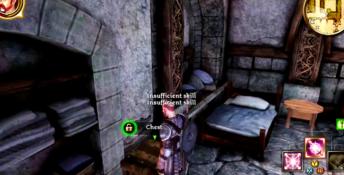
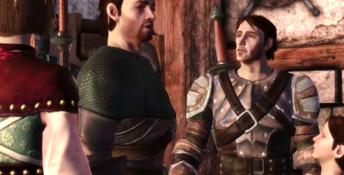
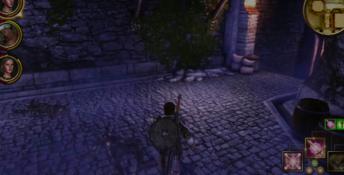


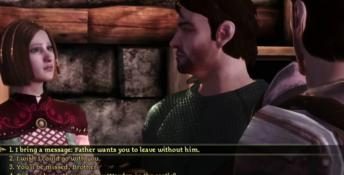
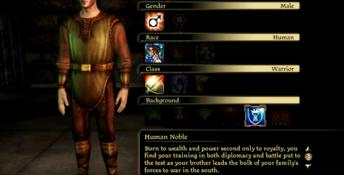
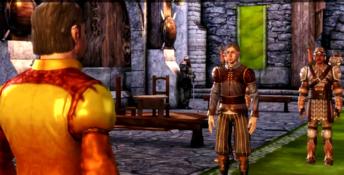

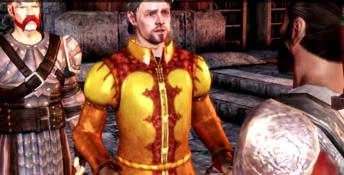

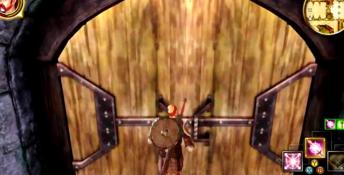
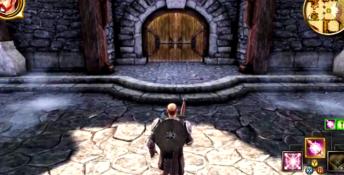
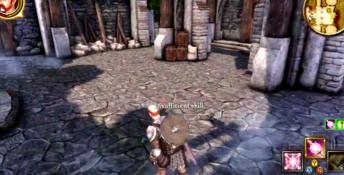
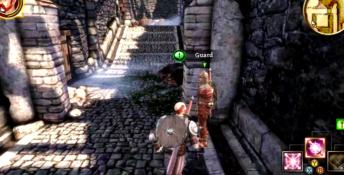
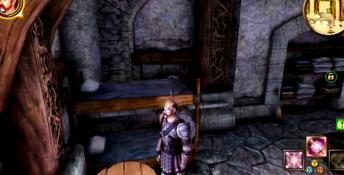
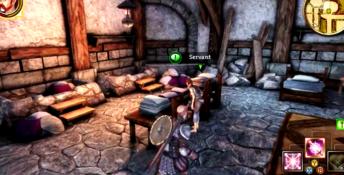
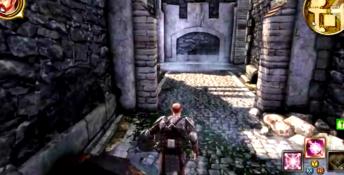
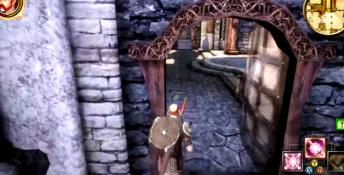


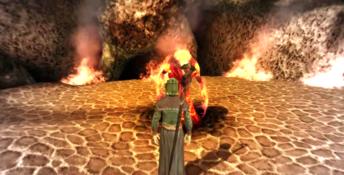













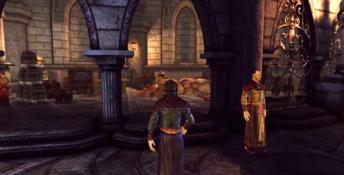
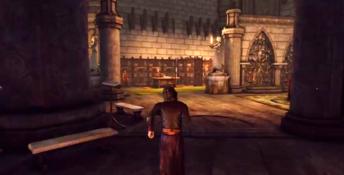














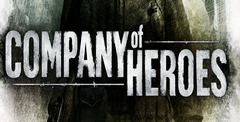 Company of Heroes
Company of Heroes
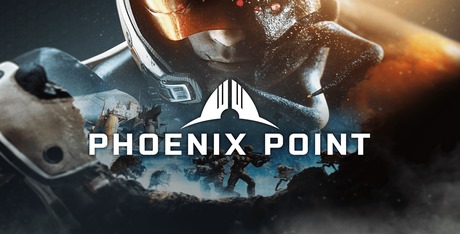 Phoenix Point
Phoenix Point
 Big Ambitions
Big Ambitions
 Desperados 3
Desperados 3
 Shotgun King: The Final Checkmate
Shotgun King: The Final Checkmate
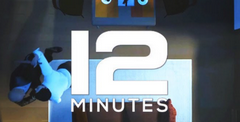 Twelve Minutes
Twelve Minutes
 Risk Factions
Risk Factions
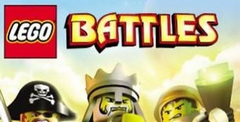 Lego Battles
Lego Battles
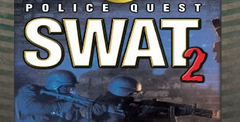 Police Quest: SWAT 2
Police Quest: SWAT 2
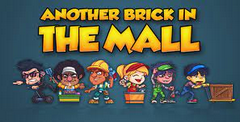 Another Brick in the Mall
Another Brick in the Mall
 Yu-Gi-Oh! GX: The Beginning of Destiny
Yu-Gi-Oh! GX: The Beginning of Destiny
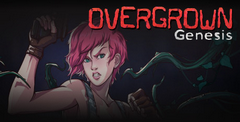 Overgrown: Genesis
Overgrown: Genesis
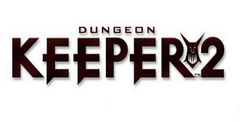 Dungeon Keeper 2
Dungeon Keeper 2
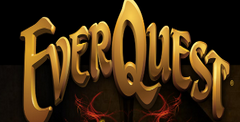 EverQuest (1999)
EverQuest (1999)
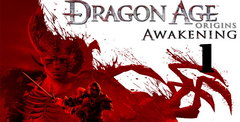 Dragon Age: Origins – Awakening
Dragon Age: Origins – Awakening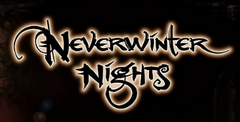 Neverwinter Nights
Neverwinter Nights
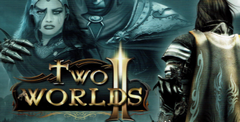 Two Worlds II
Two Worlds II Mass Effect
Mass Effect
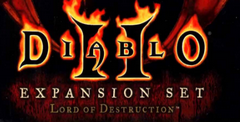 Diablo II: Lord of Destruction
Diablo II: Lord of Destruction
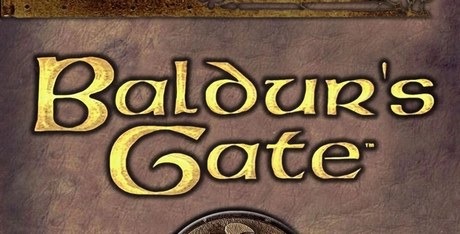 Baldur's Gate
Baldur's Gate